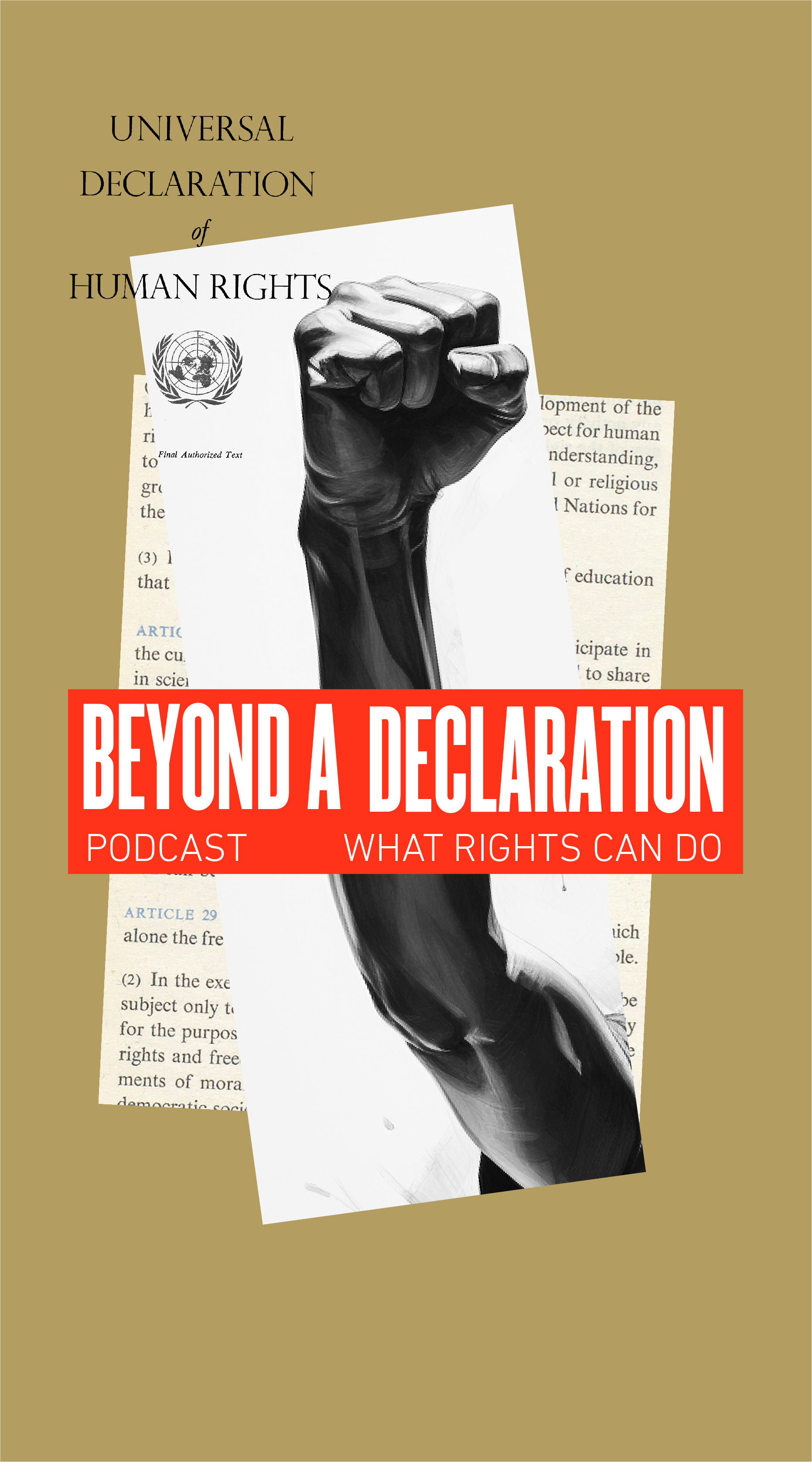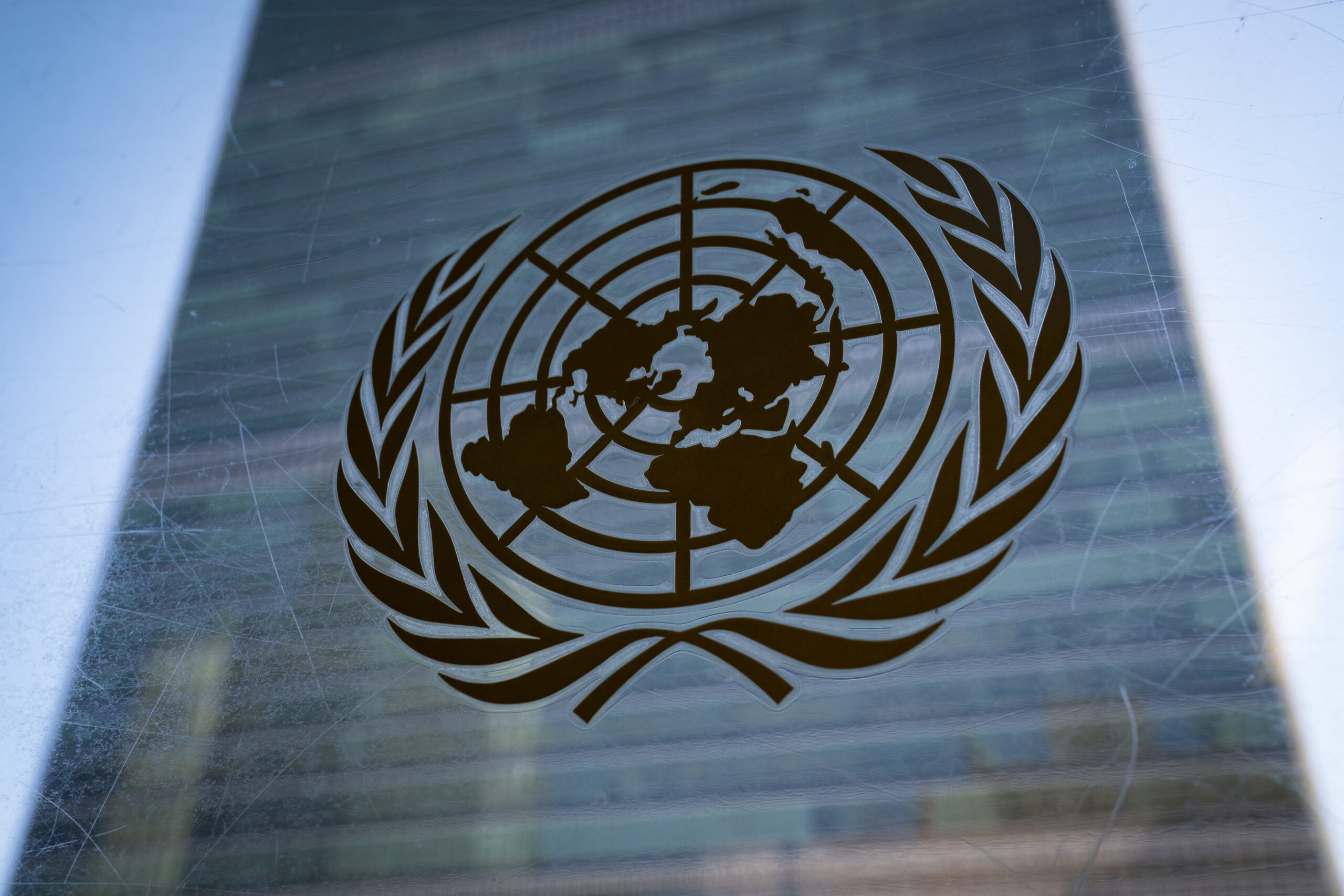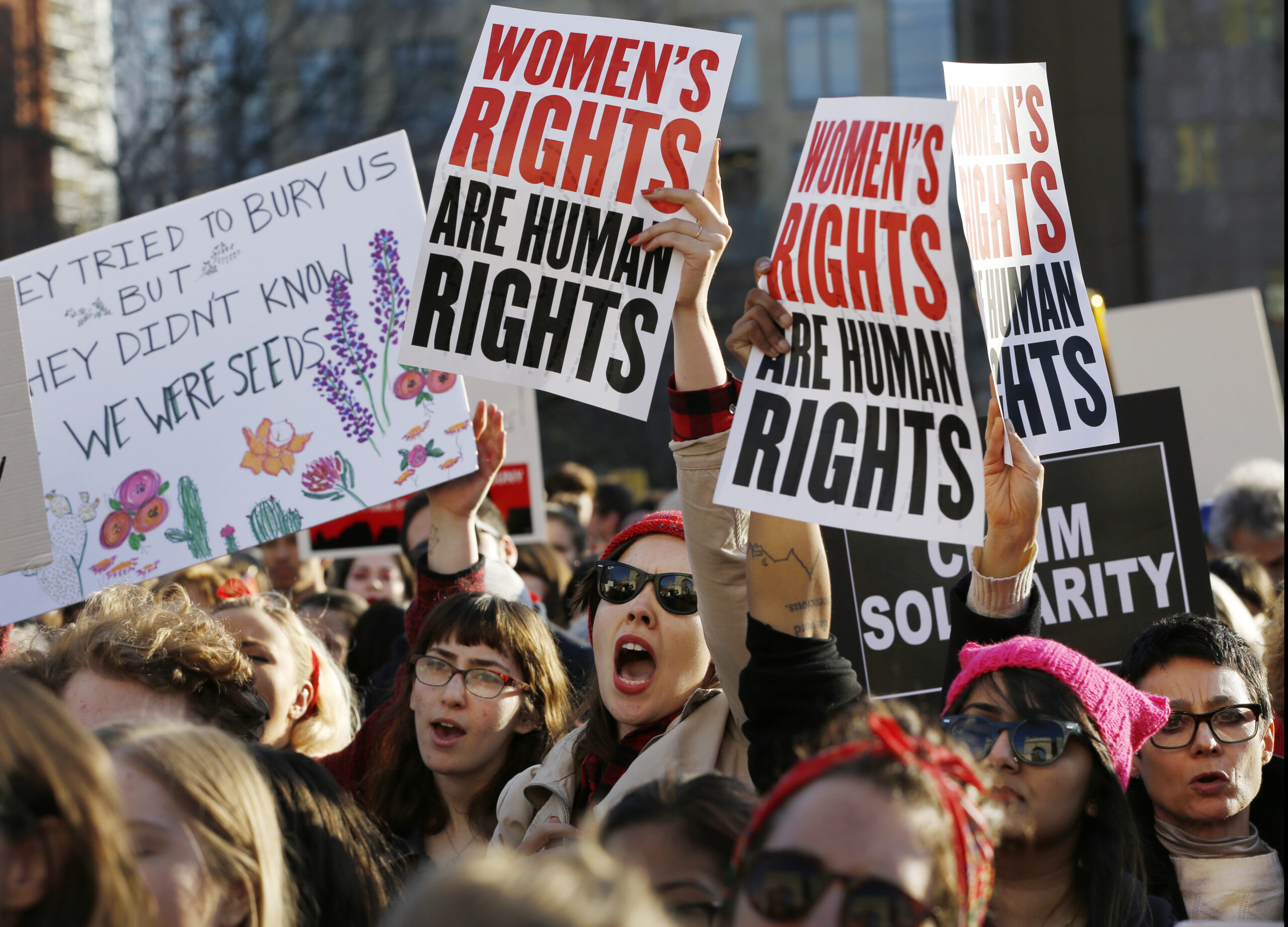On July 29th, 28-year-old O’Shae Sibley was dancing to Beyonce’s Renaissance album when he was stabbed. More than 6,500 miles away, dancer Ali had to go into hiding when the Taliban took over. These two men had two things in common: they were both openly gay and they both were being targeted for it.
Whether in the shadows of a democracy, or in the rubble of poor governance, the road to authoritarianism has the same starting point: a normalization of cruel, inhuman, or degrading treatment through the weaponization of fear. Authoritarians, from Henry Kissinger to Benjamin Netanyahu, strategically violate the right to be free from cruel, inhuman or degrading treatment by either governing through fear and violence targeting historically marginalized communities, or by spreading misinformation about those same communities to instill fear, and then manipulating that fear in order to build political power.
And it’s a popular strategy for the electorate: if bullies can be celebrated as strong, if apologies and accountability are coded as weak, then why should anyone be held accountable for bad behavior? There’s a real promise of liberty, and widespread human rights violations, in convincing voters they can treat people however they want to, and that the problem isn’t their behavior, but the possibility of consequences.
In every country, for communities already at the margins, the politics of mass fear can evolve into a politics of cruelty, subjecting migrants, the queer community, and BIPOC families to cruel, inhuman, and degrading treatment and punishment at the hands of classmates, colleagues, family members, and politicians. Ali wasn’t just hiding from the Taliban: he was hiding from his father who was using his connections to the Taliban to hunt down his own son. This parental violence is an escalation of the kind of rejection and violence that queer youth in the United States face in their own homes every day.
In past US State Department country reports, examples of cruel, inhuman, or degrading treatment or punishment have included electric shocks, humiliation, and beatings, among others. Humiliation is a tactic of authoritarians: in the US, between 2020 and 2021, as Trump and Biden were at the height of their campaigns, hate crimes against LGBTQ individuals increased by 70%. This follows global data showing that, when politicians have platforms to spew hate speech, political violence increases, especially against ethnic, religious, racial, or sexual orientation minorities.
Non-binary and trans communities are under attack in the US and Afghanistan by bullies with a pulpit. In Afghanistan, the Taliban is using fear to motivate families to turn over LGBTQ relatives to their authority, turning any familial bigotry or past grudges into a life sentence.In the United States, GOP Congressman Webster Barnaby called transgender people “mutants” and “demons”. In both countries, queer communities are being written out of the history books and the classrooms: in addition to the ban on education for girls, the Taliban are working to rewrite curriculum for classrooms. The GOP, in banning queer fiction and non-fiction, has taken the same approach. In the first seven months of 2023, there were nearly 700 attempts to ban library books in the United States.
Every anti-LGBT bill introduced is an opportunity for extremist politicians to build a platform for hate speech: in 2023, at least 417 anti-LGBTQ bills have been proposed. That’s 417 platforms for authoritarians to spread homophobic information that endangers the LGBTQ community and build an electoral base through fear. And that hate-speech doesn’t just increase political violence: it is also internalized by LGBTQ youth. Over the last three years, as these bills have grown in number and spread homophobic misinformation, the suicide rates of LGBTQ youth have increased steadily. Research published in 2023 found that LGBTQ teens consider suicide and make suicide attempts at about twice the national rate for all adolescents. Similarly, in Afghanistan, a project manager of one mental health organization serving the LGBTQ community reported that he knew many people who have attempted suicide.
Attacks against the LGBTQ community are not being waged for a sense of morality: they are waged for power. Earlier this year, Donald Trump said the quiet part out loud: “I talk about cutting taxes, and people go like that [barely claps]. I talk about transgender and people go crazy. Who would have thought? Five years ago, you didn’t even know what it was.” Donald Trump isn’t the only rising authoritarian who has attacked gender justice on his way to political power: the GOP primary is a verifiable run for “homophobe in chief”. Governor Ron DeSantis’s dangerous Parental Rights in Education law (a.k.a. the “don’t say gay” law) bans discussion of gender and sexual orientation in kindergarten through third grade. Nikki Haley said the law doesn’t go far enough. Former VP Mike Pence is opposed to marriage equality. Vivek Ramswamy called acceptance of trans people a “cult”. The American Psychological Association found that, in recent years, “the use of disinformation to promote fear” has been striking: “discussing risks or instilling anxiety has been effective at changing intentions and behavior, particularly when the behavior [eg voting, turning others in] provides a solution to the threat”.
This isn’t a new practice: authoritarian fear mongering has deep roots in colonialism. In Uganda. India, and Nigeria, the first anti-homosexuality laws were imposed by Britain. Almost 70% of former British colonies continue to treat homosexuality as a crime. In Uganda, President Museveni recently signed into law a bill that builds on the homophobic legacy of colonialism by imposing a death penalty for ‘serial offenders’ of anti-LGBTQ legislation, and sentencing people who are proudly living as an “out” member of the LGBTQ community’, to 20 years in prison.
Authoritarians are a megaphone for the most biased fears within a society: from homophobia to racism to misogyny, authoritarians prey on our worst impulses and build community by validating the worst of us. In both the US and Afghanistan, authoritarians aren’t just violating the right to be free from cruel, inhuman or degrading treatment or punishment: they are intentionally inflicting cruel, inhuman,and degrading treatment or punishment in order to gain power and rule through fear. In order to save queer lives, and our democracy, we have to cut them off at the source of their power: challenge fear and division, and instead, diligently practice care.
Feminist communities practice care by building supportive and accountable structures within community infrastructure. Where authoritarians code apologies as weak, feminists code accountability as strength and an opportunity for growth. Where authoritarians code liberty as rugged individualism, feminists code liberty as collective liberation, so everyone has the unimpeded opportunity to participate in the social and political life of their communities. This care is diligent: it depends on confronting fear instead of amplifying it, and facing division with curiosity instead of animosity.
Because that’s how we beat authoritarians: we throw out their rule book and demand better of ourselves and one another.
KATE ALEXANDER (she/her) is an anti-war grassroots feminist organizer and policy advocate. She is the policy and campaigns officer for an international human rights organization and feminist fund. You can follow her on Twitter @katecma
Top photo: Sam T (samm4mrox) – CC BY-NC-ND 2.0



